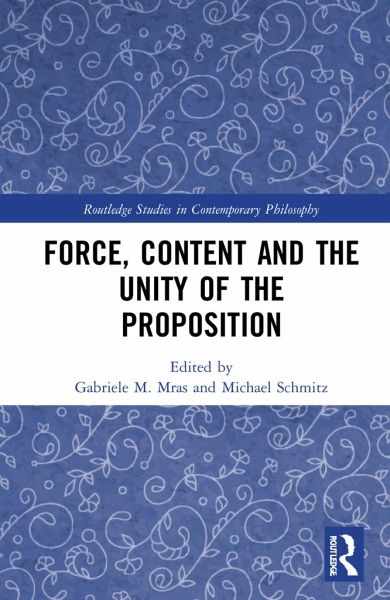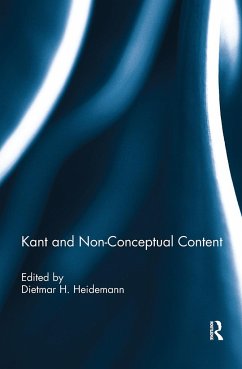
Force, Content and the Unity of the Proposition
Versandkostenfrei!
Versandfertig in 1-2 Wochen
167,99 €
inkl. MwSt.

PAYBACK Punkte
84 °P sammeln!
This volume advances discussion between critics and defenders of the force-content distinction and opens up new ways of thinking about force and speech acts in relation to the unity problem. The force-content dichotomy has shaped the philosophy of language and mind since the time of Frege and Russell. Isn't it obvious that, for example, the clauses of a conditional are not asserted and must therefore be propositions and propositions the forceless contents of forceful acts? But, others have recently asked in response, how can a proposition be a truth value bearer if it is not unified through th...
This volume advances discussion between critics and defenders of the force-content distinction and opens up new ways of thinking about force and speech acts in relation to the unity problem. The force-content dichotomy has shaped the philosophy of language and mind since the time of Frege and Russell. Isn't it obvious that, for example, the clauses of a conditional are not asserted and must therefore be propositions and propositions the forceless contents of forceful acts? But, others have recently asked in response, how can a proposition be a truth value bearer if it is not unified through the forceful act of a subject that takes a position regarding how things are? Can we not instead think of propositions as being inherently forceful, but of force as being cancelled in certain contexts? And what do assertoric, but also directive and interrogative force indicators mean? Force, Content and the Unity of the Proposition will be of interest to researchers working in philosophy of language, philosophical logic, philosophy of mind and linguistics.












